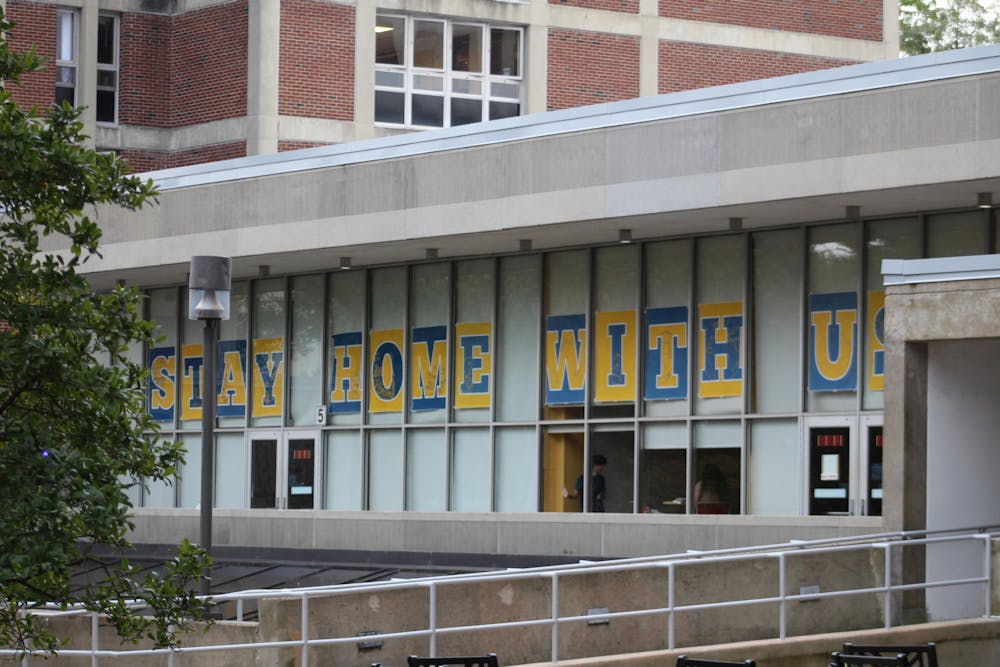By Mike Sherr
Editor-in-Chief
A number of on-campus residents sought medical attention last week after being impacted by high temperatures in dorms. With temperatures consistently in the high 80s and low 90s, on-campus students have little relief from their hot dorms.
Rachel Scheff, a freshman fine arts major, lives on the fifth floor of Travers Hall and was one of those students that was sent to a hospital due to overheating on Sept. 8.
“I haven’t been able to sleep in this heat,” Scheff told The Signal. “I have five fans going with the windows open. Some people have been freezing paper towels.” Scheff also mentioned that she missed class due to a lack of sleep.
Scheff’s friends called Campus Police after they noticed that she was acting differently than she normally would and was sweating heavily. At one point Scheff passed out.
“I just had to lay down on the floor,” Scheff said. “My friend who went through the same thing the day before was putting ice packs on me.”
Scheff had difficulty comprehending and answering questions when Campus Police arrived. Lions EMS also arrived at the scene and Scheff was sent to Capital Health Regional Medical Center where she was told she was experiencing heat exhaustion.
“I was so focused on how hot I was, that I wasn’t drinking [water],” Scheff mentioned. “[The doctors] were worried about kidney and liver failure from heat exhaustion.”
While at the hospital, Scheff and her friends that were visiting noticed other students from the College visiting another student who experienced heat exhaustion.
“We typically have a heat wave at the start of the semester,” Holly Heller, interim director of Student Health Services, said in an email. “Most everyone weathered the event just fine, but we did have three reports of students seeking medical care.”
While the start of the fall semester is usually hot in on-campus dorms, this summer was the hottest on record, and as climate change continues, the issue will only get worse. Heat can be detrimental to a person’s health, according to the World Health Organization, and can lead to illnesses such as heatstroke, heat cramps, heat exhaustion and hyperthermia. Some studies indicate that heat can affect a person’s physiology from stress levels to attention spans and response times.
“ResEd and Housing monitors weather forecasts as much as possible to identify when heat waves may occur,” said Tina Tormey, the director of Residential Education and Housing at the College. “We can send out messaging that helps students learn how to moderate temperatures in the residence halls and seek relief.”
Tormey’s office sent out notifications to students prior to last week’s heat wave giving them tips to keep cool including putting bed sheets in freezers, staying hydrated and wearing light colored clothes. Students were also informed to bring a fan in the fall 2023 guide to moving in.
Other institutions across the country are facing similar challenges of high room temperatures. The Diamondback, the student newspaper of the University of Maryland, placed heat sensors in dorms in 2019 and found that the average heat index was never below 80 degrees. Both Boston University and Northeastern University faced brutal temperatures in their dorms. Tormey pointed out that other east coast universities like Harvard, Yale and Rutgers all do not have air conditioning in their dorms.
An interdisciplinary group of faculty and students at the College began a project last fall in order to explore heat islands in Mercer County and Trenton specifically. Part of that project, led by Dr. Nathan Magee, chair of the physics department, and his students, entailed placing sensors and flying weather balloons with infrared cameras around Ewing and Trenton.
“One of the things that actually surprised us was that things that are red colored like bricks and shingles actually absorb as much heat as black materials,” Magee said. “I would guess that the rooms facing south are worse too.”
Regardless of where the dorm is in the building, students have very few opportunities to keep cool in their rooms. Even with freshmen being the largest population that reside in on-campus housing, they have no access to air conditioned dorm rooms without accommodations. Some dorms do have air conditioned common areas; however, students can not escape the heat at night.
“I think the College should think about how, especially with the changing climate, it is going to be more common that we will have a week or two in September or May where it is absolutely brutal in spaces without air conditioning,” said Magee. “The College should not ignore it for sure.”







